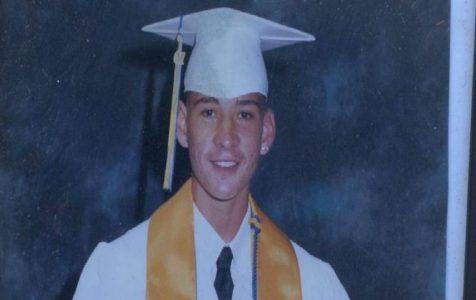
Hawaii soldier charged for aiding ISIS planned attack on Schofield barracks as a suicide bomber
Wheeler Army Airfield soldier and accused ISIS sympathizer Ikaika Erik Kang told a confidential source that he was going to leave the military after getting promoted, join ISIS and attack Schofield Barracks as a suicide bomber, according to documents unsealed Monday in U.S. District Court.
Kang, 35, is charged with four counts of attempting to provide material support or resources to a designated foreign terrorist organization. His trial is scheduled for next month. Kang remains in custody at the Federal Detention Center with no opportunity for release on bail or bond.
The charges accuse Kang of trying to provide IS with a training video of fighting techniques, classified U.S. military documents and military gear, including tactical equipment and ammunition. Kang is also accused of trying to provide ISIS a GoPro Karma, a consumer camera-equipped drone.
Kang is not charged with actually providing support or resources to ISIS because the people to whom he allegedly gave the video, documents and gear were undercover agents, not ISIS members or fellow ISIS sympathizers.
It is not clear from the unsealed documents when Kang allegedly told the confidential source that he planned to leave the Army and become a suicide bomber. However, the documents say Kang made other statements to the confidential source in September 2016.
The FBI referred to Kang in the documents as an Army staff sergeant and that he talked about getting promoted to sergeant first class. At the time of his arrest in July, Kang’s rank was sergeant first class.
The documents are included in the government’s application for authorization to install and monitor a tracking device on Kang’s car.
The FBI says in the application that it and military law enforcement authorities were conducting coordinated on- and off-base surveillance of Kang. The FBI said it needed the tracking device to continually monitor Kang’s movements as he entered and exited military installations without tipping him off that he was being watched.
U.S. Magistrate Judge Kenneth J. Mansfield approved the first application Oct. 7, 2016. The authorization expired Dec. 1, 2016. The government applied for and was granted five more 45-day authorizations to install, repair, replace and remove a tracking device from Kang’s personal vehicle. The last authorization expired July 13.
FBI agents arrested Kang on July 8, the day they said he swore a pledge of loyalty to a known ISIS leader, accepted an ISIS flag as a gift and said he wanted to kill people.
Documents that FBI and Naval Criminal Investigative Service special agents submitted in support of the vehicle tracking warrant applications say Kang told a confidential source that his plan was to stay in the military long enough to get promoted to sergeant first class, separate from the military, move to the Middle East, join ISIS, become a Muslim, study Arabic and follow the Quran. He also allegedly told the source that if he became a member of ISIS, he would be a suicide bomber and attack Schofield.
Kang’s court-appointed lawyer, Birney Bervar, said Monday he had not yet seen the documents and could not comment on them.
Source: Task and Purpose





